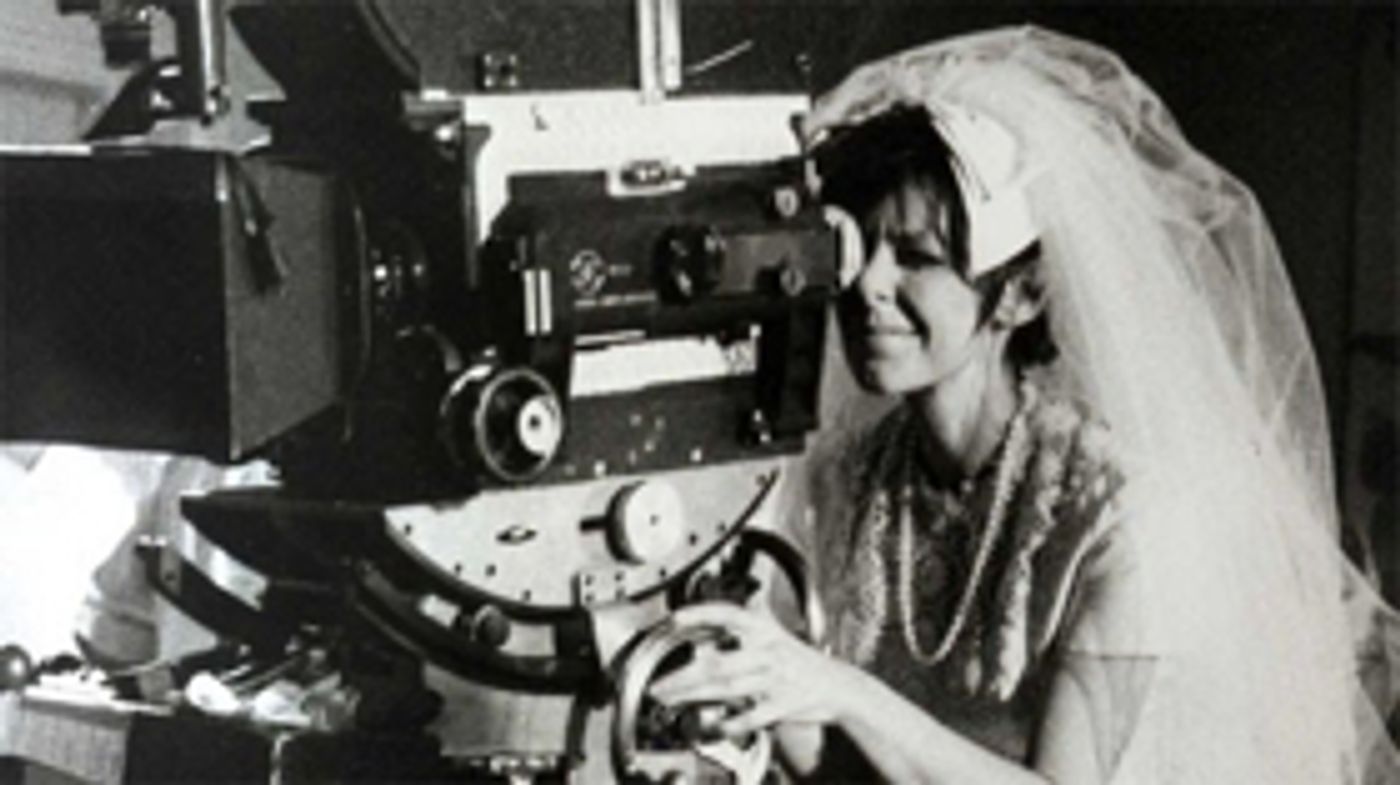BAMcinématek to Present A Different Picture: Women Filmmakers in the New Hollywood Era

From Wednesday, May 2 through Sunday, May 20, BAMcinématek presents A Different Picture: Women Filmmakers in the New Hollywood Era, 1967-1980. A counter-narrative to the traditional macho mythology of the New Hollywood era, this series seeks to correct a historical wrong. As programmer Jesse Trussell explains, "This series is a redress to the established Easy Riders and Raging Bulls narratives; women from coast to coast radically altering film form, film subject and film power structures." This series spotlights the prodigious work of female filmmakers in the United States from 1967-1980; films made both inside and outside of the Hollywood system and encompassing a wide array of genres from comedy to drama, art house to exploitation.
The series opens with Claudia Weill in person for It's My Turn (1980-May 2), starring Jill Clayburgh and Michael Douglas. It's My Turn screens with Joyce Chopra's Joyce at 34 (1972), made in collaboration with Weill. The series closes with Weill's iconic Girlfriends (1978-May 20). Two films by Elaine May, one of the few women making major studio films at the time, appear in the series: A New Leaf (1971-May 4), screening with Faith Hubley's W.O.W. (Women of the World) (1975), and Mikey and Nicky (1976-May 13). There are also two films by Joan Micklin Silver: Chilly Scenes of Winter (1979-May 13) and the Academy Award-nominated Hester Street (1975-May 6). Screening with Hester Street is Barbara Loden's rarely screened short film The Frontier Experience (1975), written by Silver.
Other special appearances include Julia Reichert in person for Growing Up Female (1971-May 5), which screens with Jane Giese's Janie's Janie (1971) and Liana Brandon's Betty Tells Her Story (1972). Kathleen Collins daughter, Nina Collins, will introduce her mother's 1980 film The Cruz Brothers and Miss Malloy (May 17), which screens with Fronza Woods' Killing Time (1979) and Fannie's Film (1979), all screened most recently in BAM's One Way or Another series. Christine Choy joins us for a post-screening Q&A following her 1976 film From Spikes to Spindles (May 19), screening with Sylvia Morales' Chicana (1979), two films by women of color relaying stories of their community's past.
The first of two short film programs in the series features films by women who have gone on to direct well-known feature films. The program includes: And You Act Like One Too (1976-May 3) by Desperately Seeking Susan director Susan Seidelman; I Don't Know (1976) by Wayne's World director Penelope Spheeris; Set-Up (1978) a film school short by future Oscar-winner Kathryn Bigelow; Julie Dash's Four Women (1975); and Michigan Avenue (1973) by Bette Gordon and James Benning. A second short film program focuses on the NYC punk scene featuring Vivienne Dick's She Had Her Gun All Ready (1978-May 11) and Becky Johnston's Sleepless Nights (1978), starring downtown legends John Lurie and Maripol.
Other series highlights include: Shirley Clarke's Portrait of Jason (1967-May 5) screening with Ayoka Chenzira's Syvilla: They Dance to Her Drum (1979); Yvonne Rainer's A Film About a Woman Who (1974-May 5); three films by Chantal Akerman: Hotel Monterey (1972-May 16) screening with La chambre (1972), and News From Home (1977-May 18); Cinda Firestone's Attica (1974-May 20); Kate Millet and Susan Kleckner's Three Lives (1971-May 8) screening with Marguerite Paris' All Women Are Equal (1972); Chick Strand's Soft Fiction (1979-May 9) screening with Howardena Pindell's Free, White and 21 (1980); exploitation films like Barbara Peeters' Bury Me an Angel (1972-May 12) and Stephanie Rothman's The Student Nurses (1970-May 12) and Terminal Island (1973-May 12). The series also includes Larry Bullard and Carolyn Johnson's A Dream is What You Wake Up From (1978-May 15) screening with Your Children Come Back to You (1979); Joan Darling's First Love (1977-May 17); and Barbara Kopple's Harlan County USA (1976-May 19) screening with Madeline Anderson's I Am Somebody (1970).
Photo Credit: Photofest
Videos

